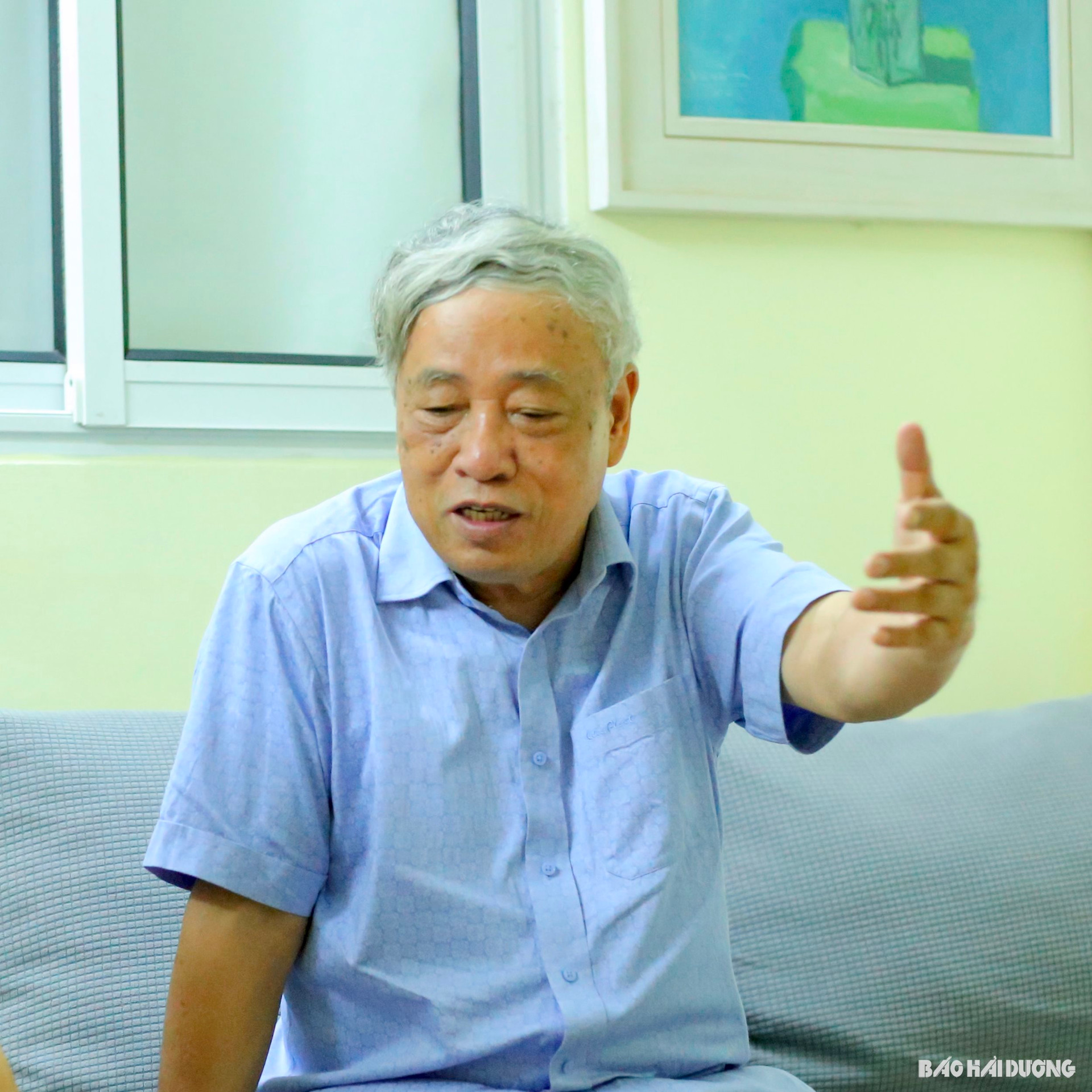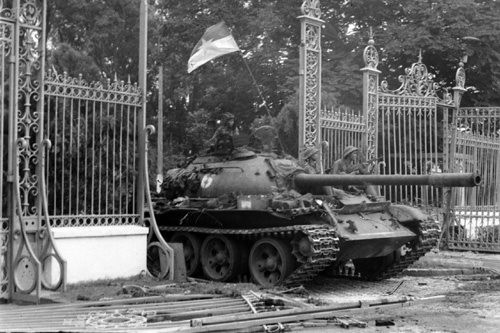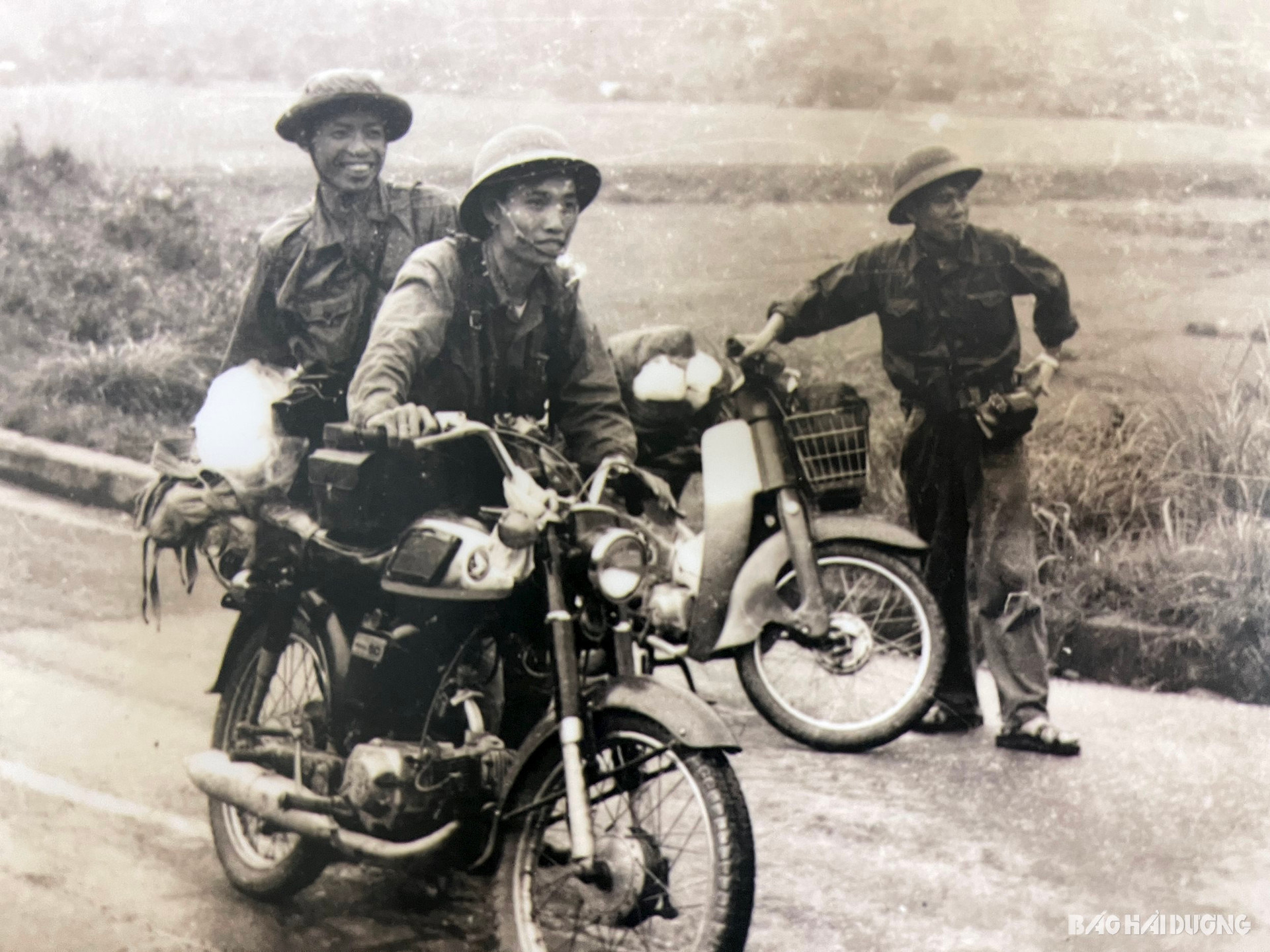In the life of journalist Tran Mai Huong (from Hai Duong City), former General Director of Vietnam News Agency, he spent more than 10 years as a war correspondent, which were also the most important years in his journalism career.

We visited journalist Tran Mai Huong on a rainy afternoon in June, just a few days before the 99th anniversary of Vietnam Revolutionary Press Day (June 21, 1925 - June 21, 2024). His small house in the Bach Khoa apartment complex (Hanoi) is as simple as his retirement life.
In the life of journalist Tran Mai Huong, he was a war correspondent for more than 10 years. But those were the most important 10 years in his journalism career, helping to shape his qualities, personality, and courage to serve his future journalism work.
Our conversation with the famous former war correspondent lasted more than an hour. Journalist Tran Mai Huong turned over each page of memories, taking us back to the fierce days of war.
Since he was a young journalist for the Vietnam News Agency, he experienced the “Red Summer” of 1972 in Quang Tri. For him, this place will always be a land with many events and attachments. It was a general offensive campaign with big battles and human sacrifices. That was the female guerrilla Thu Hong, whose photo he had just taken, who died a few weeks later, when she was not yet 20 years old; that was the photojournalist Nghia Dung, whom he met on the march, who fell in the first days of the campaign.
In the spring of 1973, after signing the Paris Agreement, special images were also imprinted in his mind: the tears of a couple who were imprisoned soldiers, meeting again after 12 years apart on the prisoner exchange site by the Thach Han River; the rare moment at the meeting point in Linh Quang - Trieu Phong, when the liberation soldiers and the Saigon soldiers met with the desire for peace.
He was also one of the first journalists to enter Hue when the ancient capital was liberated, present at the Independence Palace on the historic day of April 30, 1975 and took the iconic photo "Liberation Army tanks entering the Independence Palace at noon on April 30, 1975". That was the tank number 846, with tank commander Nguyen Quang Hoa, driver Tran Binh Yen, gunners Nguyen Van Quy and Nguyen Ba Tu - who later became his friends. This photo was later widely used and became a familiar symbol of the Great Spring Victory of 1975.

He was in Phnom Penh on January 7, 1979, when Vietnamese volunteer soldiers and Cambodian revolutionary soldiers entered the country and overthrew the Pol Pot genocidal regime. He will never forget the moment he celebrated the first Tet holiday away from his homeland with them. He also experienced moments of working within the enemy's firing range on the border of Cao Bang and Ha Giang during the fight against the invading Chinese expansionists.
In his memoirs as a war correspondent, he wrote: “I have lived through heroic and tragic years. I have witnessed historic moments and also the immense sacrifices, sufferings and losses of human beings. Many of my colleagues have fallen on the battlefield, with cameras and weapons in their hands, and unfinished news pages. That sacrifice is priceless!”
For war correspondents, the problem is not only hardship, sacrifice, and risking their lives for each trip. What is more difficult is that in such circumstances, they must complete their mission. Not only must they be present and witness, but they must also have images and documents sent back to the agency in time. These are huge challenges and dangers, and to overcome them requires not only courage but also decisiveness and intelligence in handling situations.
The life of a war correspondent is full of hardships and difficulties, having to march with the troops, working in difficult and dangerous conditions, while still ensuring the timeliness of the news. He said that after finishing his work that day, he had to travel dozens of kilometers, wade through rivers, and cross forests to the radio station to broadcast the news to Hanoi.
While working on the battlefield, there were many times when journalist Tran Mai Huong mentally prepared himself for the worst. He took a piece of paper with his name on it, wrapped it in plastic, put it in his pocket, and fastened it with a safety pin so that in case he was killed by a bomb, everyone would know who he was.

This is not only the story of journalist Tran Mai Huong, but also the story of a whole generation of reporters during the war. The war years helped journalists like him to train themselves. The courage to live, the values, and the qualities formed during those years are the foundation for each person in the years of peace that follow.
During the resistance wars to protect national independence, war reporters like him made great contributions to the journalism career, to the struggle to protect and build the country. He proudly said: “I am happy to have lived such a life and if I could choose again, I would still be a journalist to praise the good things about people and life in my beloved country.”
Having gone through the paths of war and peace, journalist Tran Mai Huong believes that in each period, journalists have to face their own difficulties and challenges. “If in the past we had to compete with falling bombs and stray bullets, today's generation of journalists must compete in the era of digital technology and globalization. The current generation of young journalists has many strengths, is well-trained, especially in science - technology, and modern journalism skills. I believe that they will worthily continue the career of their predecessors, successfully fulfill their mission, and bring our country's journalism to the level of the tasks of the new era,” journalist Tran Mai Huong confided.
LINH LINH